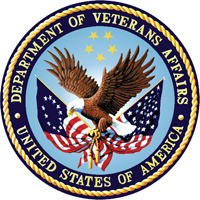Non-Department of Veterans Affairs (VA) community providers now have access to free continuing education credits and professional PTSD consultation and support, thanks to the VA’s National Center for PTSD.
 The target audience for lectures includes physicians, psychiatrists, psychologists, social workers, registered nurses, advanced practice nurses, and certified and licensed counselors. Lectures are held the third Wednesday of each month at 2 p.m. ET.
The target audience for lectures includes physicians, psychiatrists, psychologists, social workers, registered nurses, advanced practice nurses, and certified and licensed counselors. Lectures are held the third Wednesday of each month at 2 p.m. ET.
The next lecture in the series:
PTSD and Military Sexual Trauma
- Date/Time: Feb. 17, 2016 2 – 3 p.m. (ET), rescheduled from Jan. 20
- Course ID: 1061188
- Course Number: 28511
- Format: Live Webcast
- Cost: $0.00
Lecture Description
“Many Veterans seeking mental health service have experienced military sexual trauma (MST) (i.e., sexual assault and/or repeated, threatening sexual harassment during military service). While MST survivors present with a range of MST-related physical and mental health difficulties, Post-traumatic Stress Disorder (PTSD) is the most common mental health diagnosis. Addressing MST-related PTSD involves attending to many of the same treatment themes that commonly arise in the course of treating PTSD associated with other forms of trauma. Thus, clinicians with expertise in PTSD and other trauma-related difficulties have generalizable skill sets that apply to working with MST survivors. However, there are also ways in which the impact of MST may be unique relative to other forms of trauma, presenting treatment challenges that are particularly salient to MST survivors. Thus, in order to provide more targeted care, we must enhance existing approaches. The overarching goal of this lecture is to offer clinicians an opportunity to learn certain principles and tools to improve their clinical practice with MST survivors. In addition to providing background information about the nature of MST and its impact, there will also be an emphasis on the interpersonal and sexual health implications of MST, with an in-depth focus on two core areas that commonly arise in the course of treating MST-related PTSD and other mental health difficulties: 1) observing and asserting therapists’ personal limits; and 2) assessing and treating sexual functioning difficulties.”
Provider Registration
Non-VA providers can register on the VA’s TRAIN website and get more information about the program purpose statement, schedule, participation requirements, accreditation/approval information and accreditation organizations.
Upcoming Lectures
- March 16 at 2 p.m. ET
Treatment of Comorbid TBI and PTSD: What Have We Learned From Recent Studies? - April 20 at 2 p.m. ET
PTSD and Reintegration Stress - May 18 at 2 p.m. ET
Chain Analysis: An Assessment Strategy for Targeting Trauma-Related Therapy - June 15 at 2 p.m. ET
Effective Pharmacotherapy for PTSD - July 20 at 2 p.m. ET
Evidence-Based Couple Therapy for PTSD - August 17 at 2 p.m. ET
Shared Decision-Making for PTSD - September 21 at 2 p.m. ET
TBD - October 18 at 2 p.m. ET
Treating Anger and Aggression in Populations with PTSD
For more information about this Monthly Lecture Series, visit the National Center for PTSD.
Professional Consultation Support
Non-VA community providers who treat Veterans can also access free PTSD consultation support from the VA PTSD Consultation Program. Support includes education, training, information, consultation and other resources. Support does not include direct guidance or consultation for specific patients or the assumption of clinical responsibility for a specific patient. Community Providers can access the PTSD Consultation Program via the website, by phone at 866-948-7880 or email PTSDconsult@va.gov .
